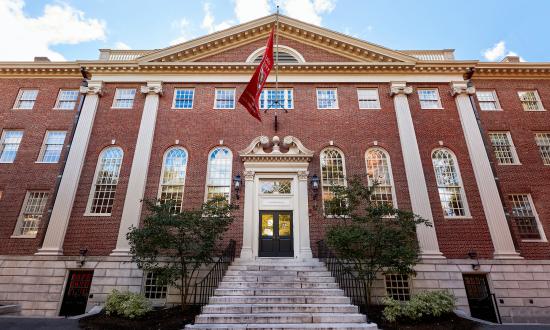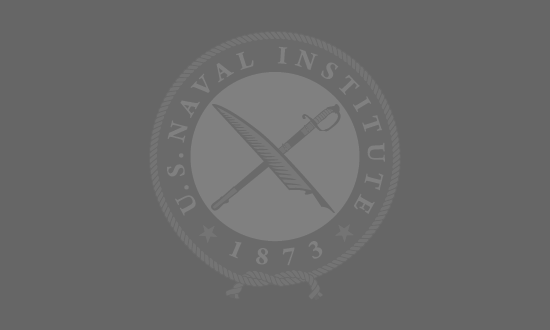For military professionals, being detailed to graduate education is the beginning of a broadening experience. The many programs available can improve professional knowledge and allow service members to develop important skills and expand their horizons. Opportunities include traditional service schools (Naval Postgraduate School, National Defense University, and other military schools) and multiple scholarships, fellowships, or partnerships at civilian institutions or non–Department of Defense agencies.
Shifting from an operational mindset is an essential first step to prepare for the academic environment. Three additional actions to help service members make the most out of this educational opportunity are understanding the learning environment before arrival, developing reading and note-taking skills, and preparing for academic writing. Given that most service members detailed to graduate schools will have been away from the academic environment for many years, these steps can help ensure success.
From Operational to Academic
The shift from operator to graduate student can be challenging. The prospective student must prepare for a change in professional objectives. This change involves altering one’s mindset from leading sailors and Marines while managing programs and conducting missions to concentrating on educational requirements and working in small teams with peers. Such a transformation moves service members from a hierarchical structure to a collaborative environment. While a healthy progression and part of the overall learning process, the transition can surprise those service members accustomed to leadership and authority positions. The key to success is to shift away from seeking efficiency in an operational environment and instead refocus the mind toward developing the self-realization that leads to deeper learning.
This shift is not about preparing for a more rigorous learning environment. Many military training programs and schools have complex and lengthy courses that match the intensity and depth of graduate-level college classes. The shift, instead, is about developing the ability to discuss (i.e., debate) the curriculum. Most military training involves learning established procedures or concepts by mastering specific standards. If they happen at all, disagreements with the training course curriculum end up as inputs for future improvements to the program. In graduate education, a debate is often part of the learning process.
Most theories and principles are under continual discussion and scrutiny in academia. Participating in that discussion is integral to learning—gaining knowledge should never be a passive exercise. In short, students are expected to question and evaluate the material through vibrant discussions. The academic environment also is less organized than the operational environment. This can create discomfort for those who excel in the structured environment of military operations. Bracing for this change beforehand will go a long way toward overcoming “culture shock” in the new environment.
Three Steps for Success
Future students should study the curriculum and learning environment before starting the academic year. There are graduate school professors with stories of service members arriving without understanding the course of study or its intensity. Preparation is more than just following the “before arrival” routine administrative check-in requirements common to any new duty station. Students should review the syllabus, read books or articles related to the curriculum, and talk to recent graduates. Getting current on the big topics in the field of study by reading books, listening to podcasts, and subscribing to blogs also enhances academic performance. All these activities can give new students a head start in understanding the context and learning path. At the very least, these steps enlighten the service members on what they do not know and prepare them for a return to the academic environment.
Preparation also includes improving reading and note-taking skills by developing a personalized system of information immersion. With a large amount of expected reading and study, efficiency is critical. Students should understand the various levels of reading comprehension, with the academic institution expecting students to read for a comprehensive understanding. Discovering note-taking methods that provide easy access to references is essential. Quickly identifying critical information buried in multiple pages of text is a skill honed with operational experience and easily translates to graduate school.
Those who graduated from college years ago should appreciate the many new software applications available to make this information immersion easier. These include text-to-speech software, efficient note-taking applications for tablets or laptops, and collaborative clouds. Finding a system that best fits each student’s ability to learn, retain, and recall information before arriving at school can set them up for success.
Before starting, prospective students can improve academic writing skills by practicing and developing methods that meet graduate-level standards. Academic writing is different from military writing. Skill at writing evaluations, awards, formulaic reports, and (especially) making PowerPoint briefs does not always translate into academic writing excellence. Academic writing expects formal styles, citations, strong counterarguments, and logical synthesis. Reading scholarly articles or books is a great way to assimilate these standards. Helpful (and authorized) citation and editing software, such as Notero and Grammarly, can supplement writing skills. Most schools also have dedicated writing centers with instructors and editors available for coaching improved writing skills and reviewing draft work. Switching from military writing standards to academic writing expectations is one of the most challenging aspects of going “back to school.”
Good Luck Going Back to School
Heading to an institution or program for advanced education while still earning a salary is a fantastic opportunity. Use the time beforehand to invest in academic learning skills. Accept that your worldview is limited but can expand through understanding the experiences of fellow students, instructors, and authors. Prepare for this learning opportunity by understanding the curriculum and the institution’s processes before arrival, honing reading and note-taking skills, and cultivating an academic writing style. These actions will help shift prospective graduate students’ mindsets from operational to educational and facilitate the successful completion of graduate education.







